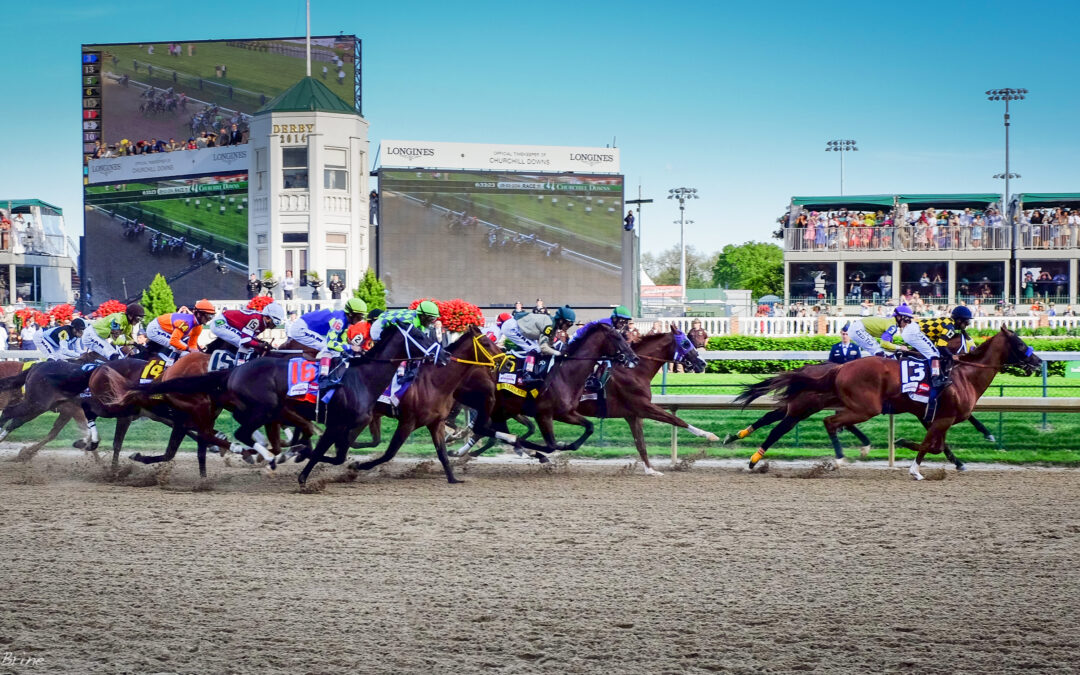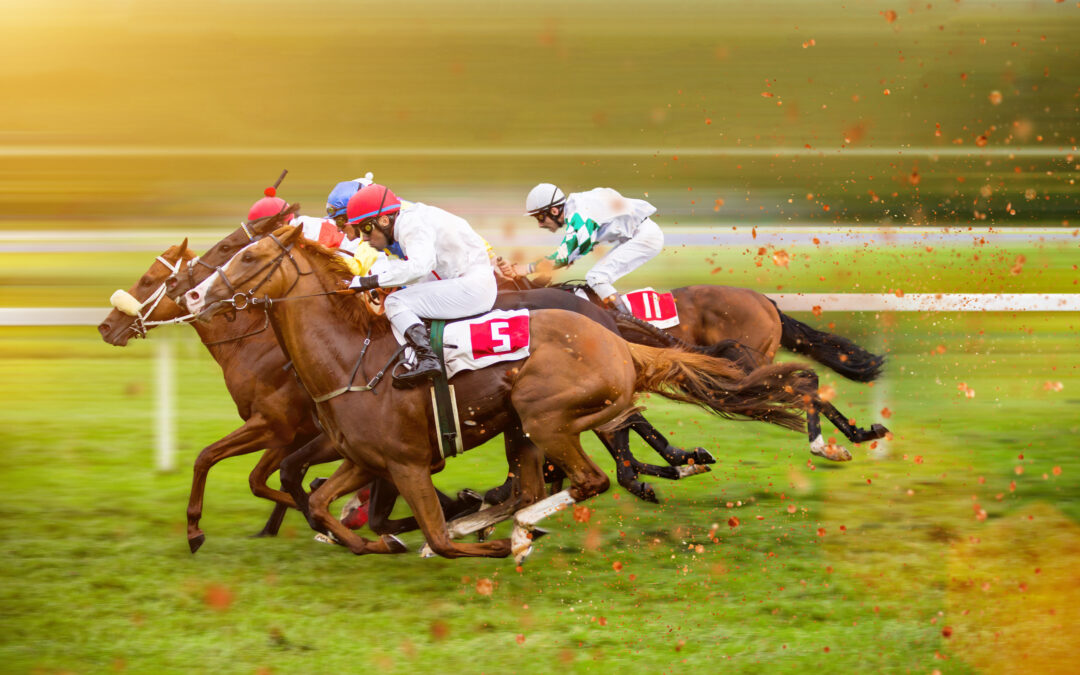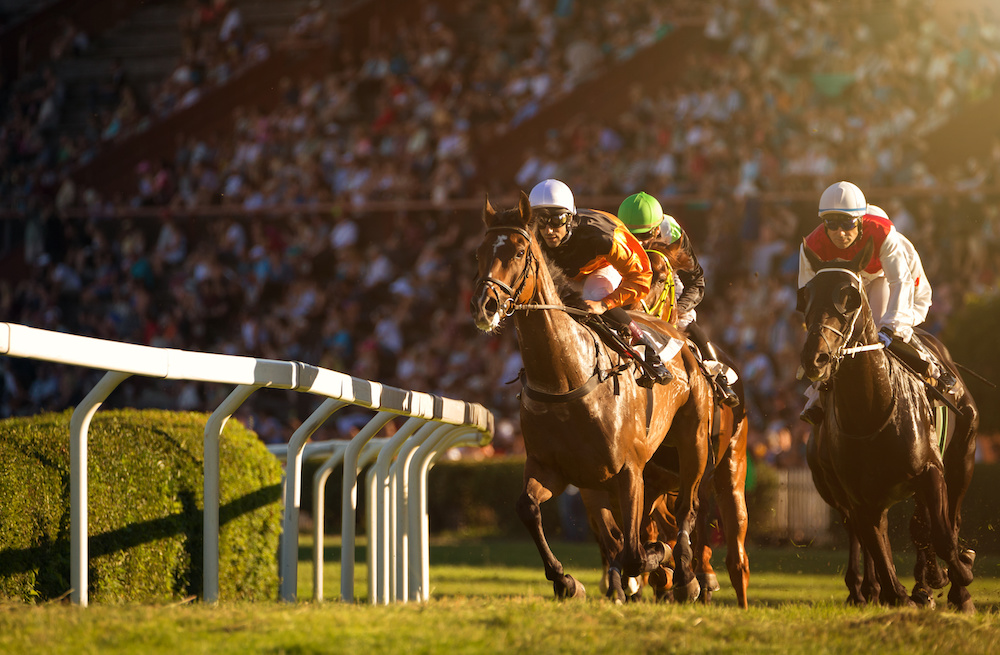It’s the number one question on the minds of every first-time bettor: how do I win? The answer, unfortunately, is not as simple as “pick the right horse.” Instead, several factors go into increasing your chances of winning at horse racing.
Betting on horse racing can be intimidating at first, but understanding common terminology and practices will give you a solid foundation to build your own betting strategy and increase your chances of winning.
What Do the Odds Mean?
When you make a bet, you’re risking some money to win more money. The odds tell you how likely it is you will win your bet. In general, the higher the odds, the less likely it is that you’ll win, but the payoff will be higher if you do.
If a horse has odds of 10/1, that means that if you place your bet with $10 and win, you get $100 in return. However, if they have odds of 100/1, you’d win $1000 on a $10 bet.
If you see a horse with favorable odds despite being considered an underdog, it might be worth placing your bet – if their form leads you to believe that they have what it takes.
Horse Racing Wager Types
The first step is to determine how much you want to wager and how. The minimum bet at most tracks is $2, though the amount you’re willing to risk is unique to your personal taste and the type of bet placed.
It’s essential to familiarize yourself with the terminology before placing bets in horse racing. Each bet type refers to a different set of win circumstances, meaning they each have varied chances of winning, even if betting on the same horse(s).
| Wager Type | Win Circumstances | Chance of Winning |
|---|---|---|
| Show | Your horse must finish 1st, 2nd or 3rd. | Very good |
| Place | Your horse must finish 1st or 2nd. | Good |
| Win | Your horse must finish 1st. | Average |
| Quinella | Your horses must finish 1st and 2nd in either order | Average |
| Exacta | Your horses must finish 1st and 2nd in exact order | Hard |
| Trifecta | Your horses must finish 1st, 2nd and 3rd in exact order | Very hard |
| Superfecta | Your horses must finish 1st, 2nd, 3rd and 4th | Extremely hard |
| Daily Double | Your horses must win the two consecutive races | Hard |
| Pick 3 | Your horses must win three consecutive races | Very hard |
| Pick 4 | Your horses must win four consecutive races | Extremely hard |
| Pick 6 | Your horses must win six consecutive races | Hardest of all |
How to Place a Bet at a Race Track
Most racetracks have both human tellers and automated tellers — which one you use doesn’t matter. Both are straightforward, so long as you have the following information ready:
- The name of the racetrack.
- What number race you’re betting.
- The dollar amount of your bet — The minimum bet is usually $2.
- The type of wager you want to place.
- The number of the horse or horses you’re betting on.
If you’re placing your bets with an automated teller, you’ll be prompted to enter the information. If placing a bet with a human teller, you’ll state the information in the same order; for example, if betting $5 on horse #6 to finish first in race #4 at Indiana Downs, you’d tell the teller
“Indiana Downs, race 4, $5 to win on 6”
Then, hand the teller your money and collect your ticket. Be sure to check your ticket before you leave the window to ensure all information is correct, then get ready to watch the race!
How to Win at Horse Racing
It depends on your definition of winning. There’s no such thing as a guaranteed win, but the amount of risk you’re comfortable taking on will determine your potential for significant earnings. If you’re unfamiliar with how to bet on horse racing, riskier bets might seem like the way to go. Still, it takes some knowledge and experience of how racehorses run to include them in your strategy.
The good news is that you can win. If you learn how to bet on horse racing — how to play the odds and how to identify when they’re in your favor — then you will be able to create a profitable betting strategy. As long as you accurately assess your strengths and weaknesses and follow a logical betting system, anyone can win at horse races.
Here are a few key things to remember when deciding how to bet on a race:
- Start small. When starting, it’s best to keep your bets small – even if you’re confident in your ability to pick a winner. Starting small helps manage your bankroll and avoid costly mistakes.
- Bet at the right time. The odds for each horse can change dramatically in the run-up to a race, so it’s crucial to place your bets as early as possible. That said, there can be good value in waiting until the last minute if you have a strong feeling.
- Use the right tools. Many different tools and resources are available to help you make informed decisions when betting on horses. These include form guides and tip sheets.
- Do your research. Just as you would when playing any other sport, it’s essential to do your homework before betting on horse racing. Learning about each horse, jockey and trainer can give you a good sense of which are likely to perform well. Deferring to experienced handicappers is a great way to fill out any gaps in your knowledge.
Want to learn more about the world of horse racing and betting?
Visit our Horse Racing FAQs & Glossary.
If you want to get horse racing picks from some of the most trusted handicappers in the business, turn to Green Sheet Racing. Since 1947, we’ve published daily Green Sheets and Finger Sheets for every track in the U.S., bringing you the latest and best in horse racing news.


